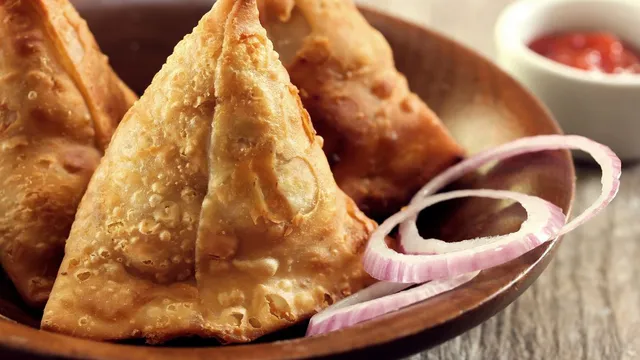- By Iram Hussain
- Wed, 16 Jul 2025 05:37 PM (IST)
- Source:JND
As obesity and lifestyle diseases continue to rise across urban India, health experts are raising concerns over the increasing consumption of deep-fried and sugary Indian snacks such as samosas, jalebis, vada pav, laddoos and pakoras. Once reserved for festive occasions, these treats have now become part of daily eating habits, especially among millennials and the urban working population.
In a conversation with The Daily Jagran, Komal Malik, Head of Dietetics at Asian Hospital gives insights on the health labels on samosas and jalebis in fighting obesity.
According to the National Family Health Survey (NFHS-5), nearly 24% of Indian adults are overweight or obese. Experts warn that frequent, unchecked consumption of high-calorie, high-fat and sugar-loaded foods is a silent but significant contributor to the obesity epidemic.
Can Health Labels on Indian Sweets And Snacks Reduce Obesity Rates?
A medium-sized samosa contains around 300–350 calories and is often deep-fried in oil that’s high in trans fats. Most people don’t realise that even occasional consumption when coupled with a sedentary lifestyle can quickly add up. Health labels won’t solve everything but they can act as speed bumps prompting people to rethink frequency and portion sizes, the expert said.
ALSO READ: What Are The Health Risks Of Eating Samosa And Jalebi? 5 Low-Calorie Indian Snacks To Curb Cravings
Nutritionists point out that public health measures like tobacco warnings and sugar taxes were once seen as extreme but gradually became effective tools for behaviour change. Similarly, better food labelling and awareness could nudge people toward healthier choices.
However, simply placing a warning board near the counter isn’t enough. Experts emphasise the need for public education on what terms like trans fats, refined flour or added sugar mean and how they affect the body.
Dietitian Notes
Dietitian says, “This isn’t about demonising samosas or jalebis. The real concern is that these were once occasional indulgences but now they’ve become daily habits. That’s the shift we need to address. The key is balance not blanket avoidance.
Health professionals agree that addressing India’s nutrition crisis begins with information and awareness. Without knowing what we’re consuming and how it impacts our health, meaningful change is difficult.

